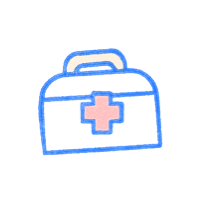Let’s talk about cardiogenic shock. This condition is all about the heart not doing its job. When we say someone is in shock, we mean their body isn’t getting enough blood and oxygen to all the tissues and cells. Shock equals hypoperfusion, meaning the blood isn’t reaching where it needs to go.
Cardiogenic shock happens because the heart can’t pump enough blood to meet the body’s needs. This isn’t due to a lack of blood (like in hypovolemic shock) but because the heart is too weak or damaged to pump effectively.
Here’s our simple method to understand this: we first explain what it is, then cover risk factors, signs and symptoms, and finally, treatment.
Causes of Cardiogenic Shock
- Heart Attack: When a heart attack occurs, a blockage in a coronary artery cuts off oxygen to part of the heart muscle, causing it to die. This makes the heart too weak to pump effectively.
- Heart Failure: One or more heart chambers fail as a pump, making the heart too weak to pump blood properly.
- Lethal EKG Rhythms: Irregular heart rhythms can make the heart quiver instead of pumping effectively.
Signs and Symptoms of Cardiogenic Shock
- Hypotension: Low blood pressure due to poor blood flow.
- Rales: Crackling sounds in the lungs as blood backs up.
- Jugular Vein Distension (JVD): Sign of heart failure.
- Increased Respiratory Rate: Difficulty breathing.
- Hypoxia: Low oxygen levels in the blood.
Patients might also experience chest pain, nausea, vomiting, cold extremities, and delayed capillary refill. If you suspect someone is in cardiogenic shock, look for these signs and symptoms.
Treatment of Cardiogenic Shock
- Oxygen: Start by giving the patient oxygen.
- IV Access: Establish an IV line.
- Cardiac Monitoring: Get an EKG and monitor heart rhythms.
- Monitoring Tools: Use end-tidal CO2 and SpO2 monitoring to keep track of the patient’s status.
The main goal is to maintain blood pressure because these patients are in shock and experiencing hypoperfusion. Use vasopressors (like epinephrine or norepinephrine) per your local protocols to help raise blood pressure.
Addressing the Root Cause of Cardiogenic Shock
- Heart Attack: Treat the blockage causing the heart attack.
- CHF (Congestive Heart Failure): Follow the CHF treatment pathway.
- EKG Disturbance: Correct any EKG disturbances.
Remember, rapid transport and early alerting of the emergency department are crucial. These patients are among the most critical you’ll encounter, so act swiftly to manage their condition.

